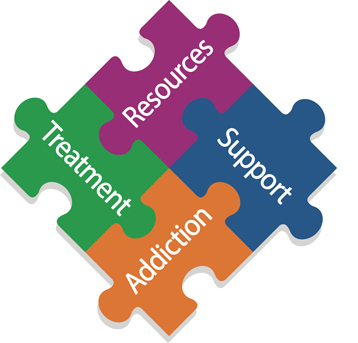Key Types of Addiction Therapy: Browsing Alcoholism Recovery Through Evidence-Based Practices
In the world of alcoholism healing, the assimilation of Cognitive-Behavioral Therapies (CBT) and Medication-Assisted Treatment (FLOOR COVERING) marks an essential stride towards efficiency and patient-centered treatment. CBT offers a structured path to reframe detrimental thought patterns, while floor covering gives a biochemical footing versus the physical tribulations of withdrawal. When these evidence-based practices are supplemented with holistic approaches, such as mindfulness and dietary assistance, they form a robust structure for treatment. Nevertheless, the journey with these techniques presents special challenges and outcomes, laying bare the question of just how these therapies concretely converge to promote sustained recuperation.

Recognizing Cognitive-Behavioral Treatments in Alcoholism Recuperation
As alcohol dependency healing develops, cognitive-behavioral treatments (CBT) have emerged as a cornerstone in reliable therapy approaches. Mental Health Treatment. Treatment focuses on recognizing these adverse patterns and mentor individuals exactly how to challenge and replace them with even more constructive thinking. The versatile nature of CBT permits it to be customized to the distinct requirements of each person, enhancing inpatient treatment facilities its alcohol abuse efficiency in the world of alcohol healing.

The Duty of Medication-Assisted Treatment in Handling Withdrawal and Food Cravings
Medication-assisted treatment (MAT) plays an essential function in the management of withdrawal symptoms and yearnings in individuals recuperating from alcohol dependency. MAT includes using FDA-approved medicines such as naltrexone, disulfiram, and acamprosate, which assist minimize the physical and emotional advises to drink, helping with a smoother and a lot more convenient detoxification process. These drugs operate by altering mind chemistry to lessen the satisfying effects of alcohol, support mood swings, and decrease physiological dependancy. This medicinal technique, when incorporated with counseling and behavior modifications, boosts the possibilities of lasting healing. Such integration sustains the retention in therapy programs and contributes significantly to avoid click to read relapse, noting MAT as a keystone of effective alcoholism treatment.

Integrating Holistic Strategies With Typical Treatments for Comprehensive Treatment
While medication-assisted treatment provides a foundational strategy to alcohol recovery, incorporating holistic techniques with typical therapies offers an extra comprehensive care design. By combining these varied techniques, therapy programs can customize treatments to individual needs, promoting a more lasting recovery. This integrated approach underscores the value of a complex method in the efficient treatment of alcohol addiction.
Final Thought
In final thought, efficient alcohol addiction healing leverages a combination of evidence-based methods. Cognitive-Behavioral Treatments reframe unfavorable thinking, while Medication-Assisted Treatment deals with the physical difficulties of withdrawal and yearnings.